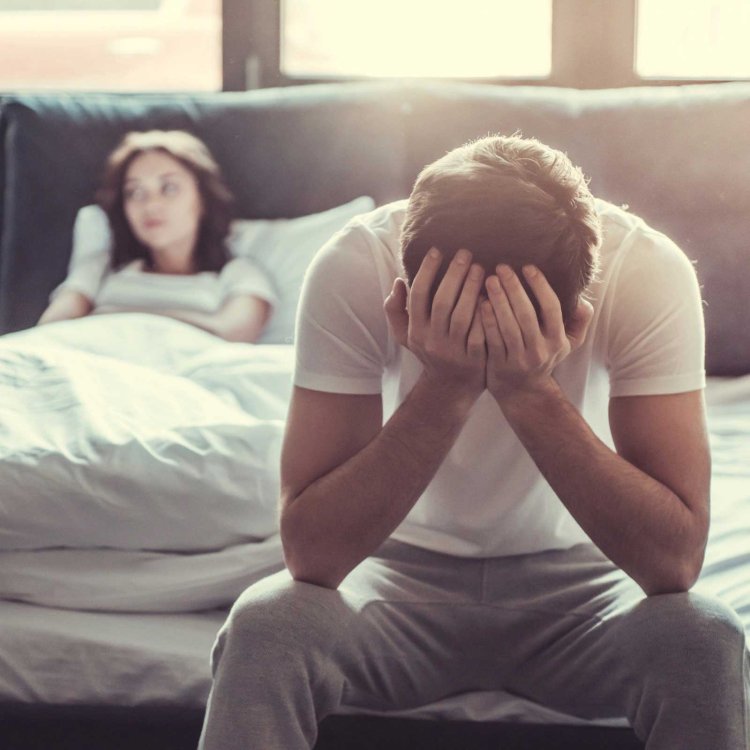10 Drugs Most Likely To Kill Your Sex Drive
If you notice a drop in your ability to have or enjoy sex, talk to your doctor about the possible causes and share all information about the medicines you might be taking. You must never stop taking a prescription drug or change dosages on your own. Your doctor is the best person to help you regain your sexual prowess.

10 Drugs Most Likely To Kill Your Sex Drive: Sex is one of the most beautiful and marvelous gifts that nature has blessed us with. Not only for procreation but sex is also considered the best way to feel the extreme ecstasy of the entire being and feel the intimacy with your loved one.
Sex drive or libido, as it is commonly known, is the key to great sexual experience and satisfaction. But it is not always a smooth ride as both men and women are susceptible to a decreased or complete lack of interest in sex.
A number of internal and external factors are responsible for the drop in sex drive and one major and most common factor is drugs, whether prescription or narcotics. Don’t lose heart as we discuss the most common drugs that play spoilsport and how you can get back into action, which means get back your libido!
Anti-depressants: These medicines are used to treat depression, which itself is a well-known libido killer. Anti-depressants provide much relief in the condition of depression but unfortunately can lower the libido. The most common symptoms of anti-depressants related to loss of libido are loss of interest in sex, delayed orgasm, delayed ejaculation or no orgasm, no ejaculation at all, and erectile dysfunction (ED) in men.
Statins and Fibrates: Statins and fibrates are used to treat the condition of high cholesterol. These drugs limit the availability of cholesterol and mostly interfere with the production of testosterone, estrogen, and other sex hormones. Few studies about the side effects of statins and fibrates have concluded that both classes of drugs may cause erectile dysfunction. A study published in 2009 found that men and women taking statins reported extreme difficulty in achieving orgasm. It further observed that people’s levels of sexual pleasure dropped along with their levels of LDL cholesterol.
Blood Pressure Medications: Blood pressure medications are used to lower the pressure of blood inside blood vessels so the heart doesn’t have to work as hard to pump blood throughout the body. While high blood pressure in itself can lead to sexual dysfunction, many drugs used to treat this condition also can increase sexual difficulties. In men, the decreased blood flow can reduce desire and interfere with erections and ejaculation. In women, it can lead to vaginal dryness, a decrease in desire, and difficulties achieving orgasm.
Birth Control Pills: Condoms for men are considered to be the safest and most effective contraceptives with no side effects. But many men refuse to wear them as it reportedly reduces the pleasure and the feel. Hence women have to take up the responsibility with oral contraceptives, or birth control pills. These pills can lower levels of sex hormones affecting the libido and desire for sex.
Painkillers: The innocuous painkiller kills more than just the pain, your sex drive. Painkillers are known to reduce the production of testosterone and other hormones vital for sexual desire in both men and women.
Antihistamines: Antihistamines are mainly used to control symptoms associated with allergic reactions, such as incessant sneezing and running nose. Antihistamines can cause erectile dysfunction or ejaculation problems in men and vaginal dryness in women.
Proscar: Proscar is used to treat enlarged prostate. The active ingredient in proscar is finasteride, which prevents testosterone from converting into its active form. Lack of testosterone means a lack of libido.
Psychiatric Medicines-Antipsychotics: These are used to treat schizophrenia, bipolar disorder, and other serious psychiatric conditions. Antipsychotics block dopamine, a brain chemical that regulates emotional responses and the brain’s reward and pleasure centers. They also increase levels of the hormone prolactin, which can lead to erectile dysfunction, reduced libido, and difficulties achieving orgasm. Antipsychotics block the action of acetylcholine, which can lead to problems in all areas of sexual function.
Benzodiazepines-Tranquilizers: Benzodiazepines, commonly known as tranquilizers are used to treat anxiety, insomnia, agitation, and muscle spasms. The sedative and muscle-relaxant properties of benzodiazepines affect sexual interest, excitement, and sensation. They may also interfere with the production of testosterone. The most common side-effects of benzodiazepines are weakened orgasms, painful sexual intercourse, erectile dysfunction, and ejaculation problems.
Cimetidine: It is largely used in the treatment of heartburn and peptic ulcers. It directly antagonizes the binding of testosterone and dihydrotestosterone to the androgen receptor in men. Cimetidine’s anti-androgen properties cause impotence in men.
These are just 10 of the drugs that can disturb your sex drive but there are many more that we will discuss in near future. If you notice a drop in your ability to have or enjoy sex, talk to your doctor about the possible causes and share all information about the medicines you might be taking. You must never stop taking a prescription drug or change dosages on your own. Your doctor is the best person to help you regain your sexual prowess.
We assure you that with proper diagnosis and treatment you can regain vitality and sex drive and get back in the groove of things. Just one piece of advice; play safe!
What's Your Reaction?



























































